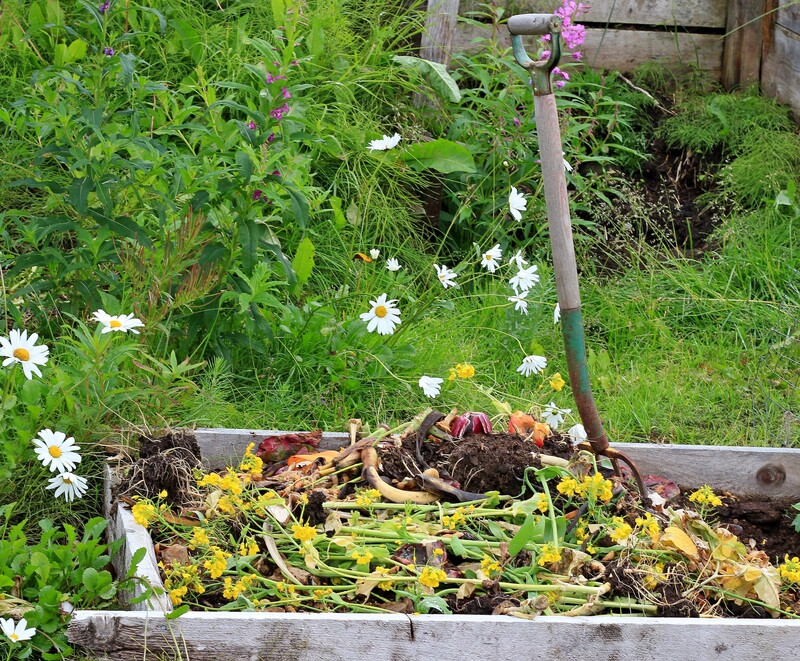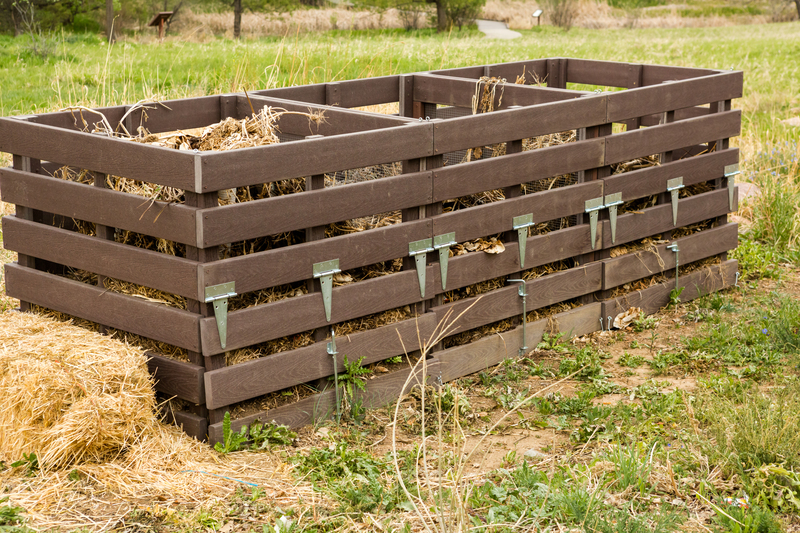Eco-Friendly Ways to Get Rid of PPE Waste
The global surge in personal protective equipment (PPE) usage, especially since the COVID-19 pandemic, has highlighted an alarming environmental problem--massive increases in PPE waste. Items like masks, gloves, gowns, and face shields, primarily made from plastics and other non-biodegradable materials, are ending up in landfills and oceans, threatening wildlife and the planet's health. As awareness grows, people and organizations alike are desperately seeking eco-friendly ways to get rid of PPE waste. This comprehensive guide explores innovative, green, and responsible approaches to dispose of PPE waste sustainably while protecting our environment.
Why is PPE Waste a Growing Environmental Concern?
PPE waste poses severe environmental challenges because most PPE products are designed for single use and are composed mainly of various plastics. These plastics can take hundreds of years to decompose, and as they break down, they release harmful microplastics into ecosystems. Additionally, improper disposal can cause human health risks, pollute waterways, and endanger wildlife. Understanding the scope of the problem is the first crucial step in adopting eco-friendly PPE disposal practices.
Magnitude of the PPE Waste Problem
- According to the United Nations, around 75% of used masks and other pandemic-related waste will end up in landfills or floating in the seas.
- It is estimated that every month, 129 billion face masks and 65 billion gloves are used globally.
- PPE waste can clog sewage systems, threaten marine and terrestrial life, and contribute significantly to plastic pollution.

Common Types of PPE and Their Environmental Impact
PPEs are varied and so are their environmental footprints. Understanding different categories is critical to devising customized eco-friendly disposal strategies.
- Masks: Disposable masks are made mostly from polypropylene, a type of plastic that is not biodegradable.
- Gloves: Latex and nitrile gloves are common. Latex is more biodegradable than nitrile, but most are treated with chemicals that hinder their breakdown.
- Gowns and Suits: These are usually single-use and create bulk waste in medical and industrial settings.
- Face Shields and Goggles: Made from rigid plastics, often not easily recyclable through standard recycling streams.
Eco-Friendly Ways to Dispose of PPE Waste
The urge to protect public health through robust PPE use must be balanced by environmental responsibility. Below are eco-friendly PPE waste disposal methods you can adopt at home, work, or in healthcare settings.
1. Reduce PPE Usage Where Possible
Reduction is the greenest option. Only use single-use PPE when absolutely necessary. For non-medical settings, reusable PPE options, such as fabric masks and washable face shields, should be prioritized.
- Opt for reusables: Where possible, switch to washable masks, gowns, and gloves made from sustainable materials.
- Promote proper usage: Avoid unnecessary use of disposable PPE in low-risk environments.
2. Educate on Proper PPE Waste Segregation
Segregate PPE waste from regular recyclables and general waste. Label special PPE bins clearly, especially in offices and public spaces, to prevent contamination and facilitate targeted disposal or treatment.
- Add labeled PPE bins: Use color-coded, well-labeled waste bins specifically for PPE items.
- Public awareness campaigns: Launch community or workplace initiatives on proper PPE segregation.
3. Eco-Friendly PPE Recycling Solutions
While not all PPE is recyclable in curbside systems, several innovations and recycling programs are addressing the challenge. PPE recycling is becoming increasingly available via specialized facilities.
- Partner with specialized recyclers: Companies like Terracycle and ReWorked offer PPE recycling boxes and services for items like masks, gloves, and face shields.
- On-site PPE recycling units: Some hospitals and organizations have installed compactors and machines that sterilize and convert used PPE into pellets for further processing into plastic goods.
- Encourage development of local systems: Advocate for municipal or regional PPP recycling schemes.
4. PPE Upcycling and Repurposing Innovations
Upcycling refers to transforming waste materials into new products. PPE upcycling initiatives are emerging in various forms:
- Plastic lumber: Shredded PPE plastics can be fused and molded into construction boards, benches, or fences.
- Building materials: Some startups process used masks and gloves into bricks and tiles used in roads and pavements.
- Nonwoven fabric reuse: Mask materials are being incorporated into insulation products and furniture padding.
Supporting these innovations means less PPE waste ends up in landfills.
5. Compostable and Biodegradable PPE Options
Replacing conventional PPE with biodegradable or compostable alternatives can radically reduce environmental impacts. Look for:
- Biodegradable masks: Made from sustainably sourced bamboo, cotton, or bioplastics.
- Compostable gloves: Options made from plant starches or bio-based polymers.
- Sustainable gowns and coverings: Suppliers creating products from rapidly renewable materials.
Important: Ensure items labeled as "biodegradable" are certified and clarify whether they decompose in home or industrial composting systems.
6. Sterilization and Safe Reuse in Healthcare
Some medical-grade PPE, particularly in professional settings, can be sterilized and safely reused without compromising safety.
- UV-C sterilization: Hospitals now use UV-C light to disinfect N95 respirators and some other PPE for limited reuse.
- Hydrogen peroxide vapor: Effective for sterilizing masks and respirators while retaining filtration integrity.
While not a total replacement for new PPE, these techniques can significantly cut medical PPE waste volumes.
7. Community Collection Drives and Take-Back Programs
Many communities now offer organized PPE waste collection events and manufacturer take-back programs:
- Local collection points: Set up special drop-off bins at pharmacies, supermarkets, and schools for PPE waste.
- Manufacturer take-back: Encourage brands and suppliers to offer return schemes, ensuring PPE is processed responsibly.
8. Waste-to-Energy Conversion
In high-volume settings, non-recyclable PPE waste can be converted into energy using controlled incineration or pyrolysis:
- Controlled incineration: Modern plants equipped with filters minimize emissions while generating usable energy.
- Pyrolysis: A process that breaks down PPE plastic into fuels and chemicals under low oxygen, reducing harmful byproducts.
Note: This is preferable to landfill disposal but should be done in facilities meeting rigorous emissions standards to avoid air pollution.
9. Advocacy, Research, and Policy Change
Promoting environmental policy interventions, supporting new research, and advocating for sustainable PPE design are foundational to lasting change.
- Policy adoption: Support legislation mandating eco-friendly PPE production and proper waste management.
- Research support: Invest in or collaborate with organizations developing novel biodegradable PPE or efficient recycling technology.
Best Practices for Personal and Business Settings
For Individuals
- Choose reusable PPE where possible; wash fabric masks regularly.
- Store used PPE in sealable bags until it can be disposed of properly.
- Participate in community collection drives or mail-back programs for PPE recycling.
- Educate family and friends on the environmental risks and green disposal practices for PPE.
For Workplaces and Healthcare Facilities
- Establish clearly marked PPE waste bins on premises.
- Train staff on correct donning, doffing, and disposal procedures.
- Engage with certified PPE recycling vendors or invest in on-site processing technology.
- Switch to eco-friendly PPE suppliers who offer biodegradable or compostable products.
Innovative Global Initiatives Tackling PPE Waste
A number of countries and organizations worldwide are piloting remarkable solutions for sustainable PPE waste management:
- India's 'Safe Recycle' Initiative: Converts used masks and gloves into paving blocks for roads--an excellent example of large-scale upcycling.
- UK's NHS PPE Recycling Pilot: Trials successful segregation and recycling of healthcare PPE into building materials, drastically slashing landfill contributions.
- Australia's TerraCycle Partnership: Provides national PPE recycling boxes and collection logistics for businesses and individuals.

Challenges and the Road Ahead
Though progress is being made, several challenges remain. Not all PPE is currently recyclable, largely due to contamination risks and material complexity. Infrastructure gaps, lack of awareness, and limited biodegradable PPE availability also hinder wider adoption of eco-friendly disposal methods.
However, as governments, research institutions, and communities recognize the urgency, investment in green technology and solutions is rising. Public pressure is also prompting manufacturers to develop sustainable PPE alternatives and invest in closed-loop systems. Ultimately, the choice and effort of each individual and organization matter tremendously.
Conclusion: A Collective Effort for a Cleaner Earth
As the world adapts to new norms involving personal protective equipment, there must be a balancing act between health safety and environmental stewardship. By embracing eco-friendly ways to get rid of PPE waste-- from reduction and reusable alternatives, to innovative recycling, upcycling, and responsible disposal --each of us can help protect our planet.
Let's spread the word, support sustainable policies, and make responsible choices, ensuring that PPE safeguards not only our health but also the Earth for future generations.
- Reduce, reuse, and recycle PPE whenever possible
- Support and demand biodegradable PPE products
- Practice proper disposal and participate in collection programs
- Stay informed about innovative solutions
Together, we can turn the tide against PPE pollution and pave the way for a greener, healthier future.
